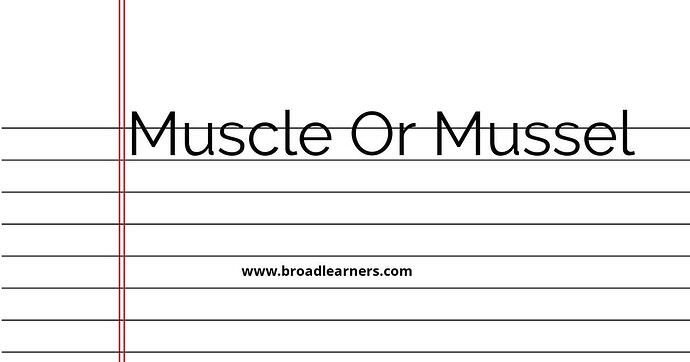'Muscle' and 'mussel' are commonly confused words in English grammar. Understanding the difference between 'muscle' and 'mussel' is important to use them correctly in written and spoken English.
'Muscle' is a noun that refers to a body tissue that contracts and relaxes to produce movement. It is also used metaphorically to describe strength, power, or force.
'Mussel' is a noun that refers to a type of shellfish with a long dark shell and a soft body that can be eaten.
Let's take a closer look at the meanings and usage of 'muscle' and 'mussel'.
| 'Muscle' | 'Mussel' |
|---|---|
| The word 'muscle' is used to describe a body tissue that contracts and relaxes to produce movement. | The word 'mussel' is used to describe a type of shellfish. |
|
|
To remember the difference between 'muscle' and 'mussel', it can be helpful to think about the context in which they are used. 'Muscle' is related to the human body and movement, while 'mussel' is related to a type of shellfish.
Here are some examples of correct usage:
- I need to exercise my muscles to stay strong.
- She ordered a plate of steamed mussels at the seafood restaurant.
- He has a lot of muscle and can lift heavy weights.
- We went to the beach and collected seashells, including some mussels.
Remembering the correct usage of 'muscle' and 'mussel' will improve your grammar and communication skills.
